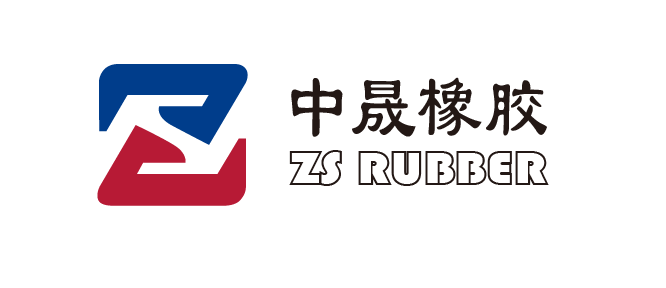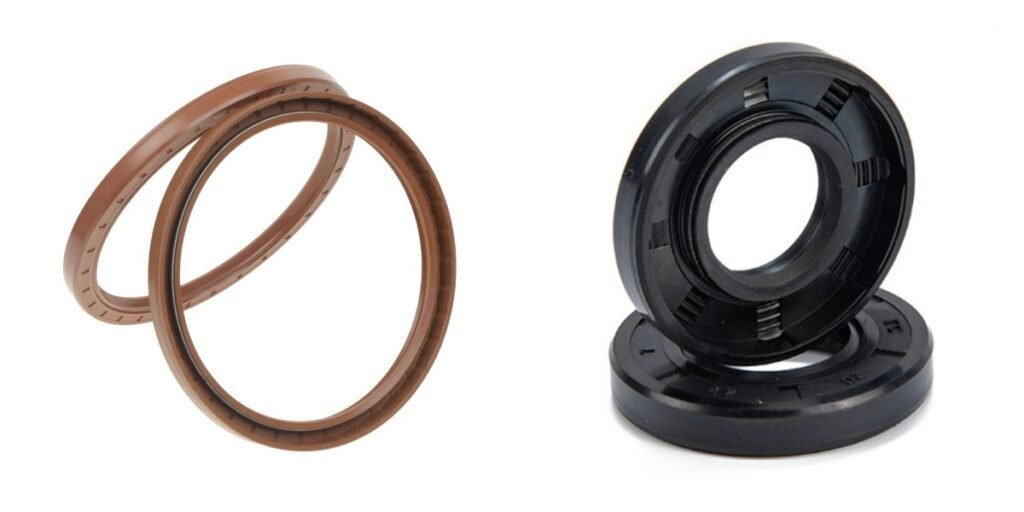TC oil seals are a critical component in rotating shaft applications, designed to prevent lubricant leakage and block contaminants. Their double-lip construction with a metal case and garter spring makes them a preferred choice in demanding environments.
Metal case gives the oil seal a certain degree of pressure resistance, garter spring to provide protection from contaminants.
This article examines their key benefits, limitations, and data-backed performance metrics to help engineers make informed decisions.
Advantages of TC Oil Seals
1. Superior Sealing Performance
Double-Lip Design:
The primary lip prevent oil leakage, while the secondary lip excludes dust and debris. Leakage reduction by 90% compared to single-lip seals (Source: SKF Engineering Report).
To maximize performance over the lifetime of the seal an adequate lubricant should be applied between the two sealing lips.
Effective in High-Speed Applications:
Operates reliably at speeds up to 15 m/s (compared to 10 m/s for standard seals).
2. Enhanced Durability & Material Options
Rubber Compounds Available:
NBR (Nitrile rubber or Buna-N): Cost-effective, operating temperature good for -40°C to 120°C, good mineral oil resistance and abrasive resistance.
FKM (Fluorelastomer): High-temperature resistance (operating temperature from -20°C to 200°C, some special formula FKM up to 250°C), ideal for aggressive oils, excellent corrosion resistance.
ACM (Polyacrylate): Optimized for hot oil environments (up to 150°C). Similar to the oil resistance of NBR
Metal case reinforcement: Prevents seal deformation under pressure up to 0.3 MPa (3 bar).
3. Wide Industrial Compatibility
Used in:·
Automotive (axles, transmissions)
Heavy machinery (excavators, hydraulic pumps)
Agriculture (tractors, harvesters)·
4. Ease of Installation
Pre-assembled units reduce fitting errors.
Shaft tolerance range: Typically h9 or h11 for optimal performance.
·
Limitations of TC Oil Seals
1. Poor Performance in Misaligned Shafts
If shaft run out exceeds 0.5 mm, seal life decreases by 50% (Source: Freudenberg Sealing Technologies).·
Not suitable for applications with excessive vibration or deflection.
2. Higher Cost Compared to Standard Seals
About 20% more expensive than single-lip oil seals due to complex construction. But ZS RUBBER supply TC oil seals with competitive prices, only about 5% more expensive than single-lip oil seals.
3. Requires Consistent Lubrication
Dry running causes rapid wear:
Friction increases by 300% without proper lubrication (Tribology International Journal).
Not ideal for low-lubrication or intermittent operation systems.
4. Space Constraints
Larger cross-section than single-lip seals, requiring more housing space.·
May not fit compact gearboxes or electric motors.·
Conclusion: When to Choose TC Oil Seals?
Best for: High-speed (15 m/s), medium pressure (not more than 0.3 Mpa), and contaminated environments.
Avoid in: Misaligned shafts, dry-running conditions, or cost-sensitive projects.
Recommendation:
For heavy-duty industrial use, TC oil seals provide unmatched reliability.
For light-duty applications, consider single-lip or other seals for cost savings.
Need expert advice? Contact our engineering team for a customized solution.
References:
SKF Bearing & Seal Engineering Manual
Freudenberg Sealing Technologies Test Data
Tribology International Journal (2023)


